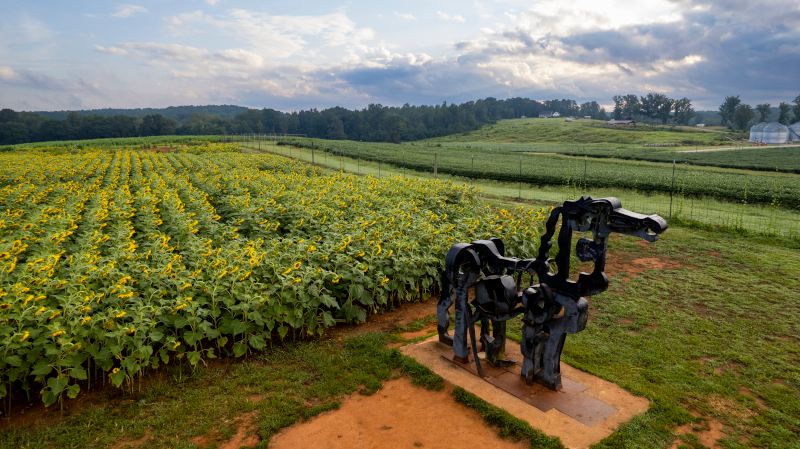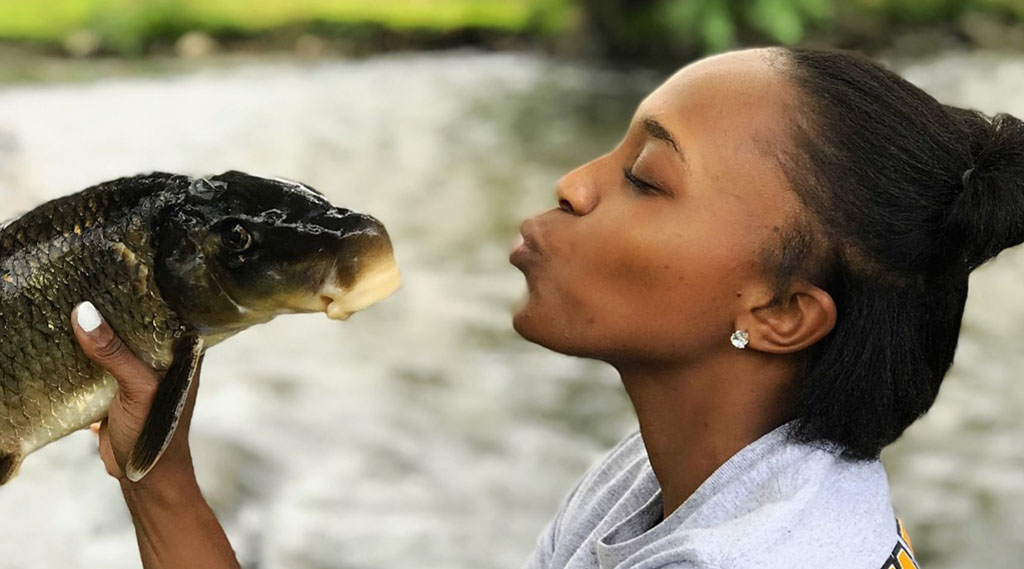Are stream restoration projects working for fish? Not long-term, new research finds.

Development threatens Georgia’s biodiversity, and projects designed to offset harm may not have a lasting positive impact on fish, according to new research from a team of University of Georgia researchers.
Imperiled frogs are dying off at alarming rates. Here’s what researchers know.

As the longleaf pine ecosystem becomes smaller and wildlife populations become more isolated, amphibians face many challenges. Among these are disease and habitat fragmentation, which are more relevant now than ever. Since April of this year, frogs that rely on these wetlands have been dying at alarming rates in some regions. The amphibian infection and mortality event appears to be widespread, according to University of Georgia researchers and their collaborators.
CAES researchers find improved treatments for removing ‘forever chemicals’

Affiliates Gary Hawkins and Ke (Luke) Li collaborated on a study to develop improved, cost-effective treatment systems with advanced technologies for removing polyfluoroalkyl and perfluoroalkyl substances (PFAS) from water, wastewater and biosolids.
Vallury awarded interdisciplinary ‘pre-seed’ grant

A team of researchers helmed by Sechindra Vallury was awarded a pre-seed grant by the UGA Office of Research and the Office of the Provost. Other team members include affiliates Donald Nelson of the Franklin College of Arts and Sciences, Emily Bell, of the School of Public and International Affairs, John Schmidt from Odum, and Daniel Markewitz of the Warnell School of Forestry and Natural Resources.
Levi leverages soil science to answer interdisciplinary questions

UGA assistant professor Matt Levi maps and models soil data for use across disciplines, from precision agriculture to fire prediction research. An earnest respect for soil and its critical functions underlies his interdisciplinary work in predictive GIS mapping.
UGA graduate student brings public education to freshwater conservation, GIS mapping

Carleisha Hanns, 2022 James E. Butler Fellow and River Basin Center student affiliate, applies leading mapping technology to ecological conservation.
Researchers reveal need to examine link between two major environmental threats

There is a critical need to explore two of the biggest environmental threats—invasive species and hypoxia, or low levels of oxygen dissolved in a body of water—side-by-side, according to a new literature review conducted by affiliate Jeb Byers.
Van Rees takes multidisciplinary approach to research, conservation outreach

Affiliate Charles van Rees, assistant research scientist at the UGA Odum School of Ecology, describes himself as a conservation scientist and naturalist. “I’m not just interested in doing science,” he said. “I want to specifically apply scientific research to promote conservation action and impact.”
Grad student assesses alligators’ exposure to contaminants

River Basin Center student affiliate Laura Kojima was 15 years old the first time she held an alligator. The California native and Mexican American had decided to visit New Orleans in lieu of having a quinceañera. Now, Kojima assesses alligators’ exposure to contaminants.
Burning questions: The mysteries of pyrogenic carbon and the effects of prescribed fire on soil

When you think of a forest on fire, you aren’t usually thinking about what’s happening in the soil- but graduate student Ali Moss is. The Spencer Research Grant winner and Warnell School of Forestry and Natural Resources student’s research investigates the relationship between prescribed fire and carbon cycling, specifically studying an organic material known as […]
